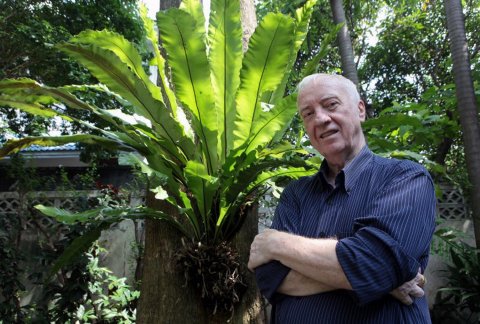Showing 1 - 10 of 810
Guru's Weekly Buzz: Feb 13-19
Guru, Nianne-Lynn Hendricks, Published on 13/02/2026
» Guru By Bangkok Post's weekly pick of the most exciting products, activities, food and travel to indulge in.
Rising star enters the semi-finals
Sports, Published on 31/01/2026
» Panitchaphon Teeraratsakul advanced to the men's singles semi-finals of the BWF Princess Sirivannavari Thailand Masters 2026 at Nimibutr Stadium yesterday.
Minnesota ICE shooting puts new twist on gun rights debate
AFP, Published on 26/01/2026
» WASHINGTON - The shooting death of Alex Pretti, a 37-year-old nurse, by federal agents Saturday in Minneapolis has spurred a new kind of debate around gun rights in the United States.
A missing item in the rural soundtrack
Roger Crutchley, Published on 18/01/2026
» As usual at this time of the year I have been enjoying life in the Northeastern province of Chaiyaphum for several weeks. However on this visit there was something slightly different which I couldn't immediately put my finger on. It took a few days before realising I was not being woken up by the usual early morning chorus of roosters or chickens of any sort.
Trump has options in Greenland, but maybe trolling is the point
AFP, Published on 08/01/2026
» WASHINGTON - If President Donald Trump is serious about bolstering the US presence in Greenland, he has options — but he may still want the most provocative one.
Robbo, the man who made Forest dream
Sports, Nobby Piles, Published on 03/01/2026
» Tributes have been pouring in for the late Nottingham Forest star John Robertson who passed away on Christmas Day at the age of 72. The Scot's death brings back memories of Forest's extraordinary achievements in the late 1970s which included winning two successive European Cups (now Champions League), in which the hugely talented left-winger played such an important role.
Gone But Not Forgotten
Life, Tatat Bunnag, Published on 23/12/2025
» 2025 really needs to slow down. The world is mourning as we lost so many talented people across film, television, music and more.
Twenty-nine beloved celebrities the world lost in 2025
South China Morning Post, Published on 20/12/2025
» This year, we lost some of the icons who shaped pop culture, from Hollywood legends to beloved musicians and television stars, including Robert Redford, Diane Keaton and Val Kilmer. We honour their memory by celebrating their lives and their enduring works.
High coffee prices are changing how consumers take their daily brew
Bloomberg News, Published on 17/12/2025
» LONDON — Global coffee prices rose to record highs this year, sending the cost of cappuccinos and lattes soaring. But a caffeine habit is hard to kick.
Five takeaways from Luigi Mangione evidence hearings
AFP, Published on 13/12/2025
» NEW YORK - Lawyers for the man accused of gunning down a health insurance executive on a Manhattan street have been in court seeking to have key pieces of evidence ruled inadmissible at his trial.












